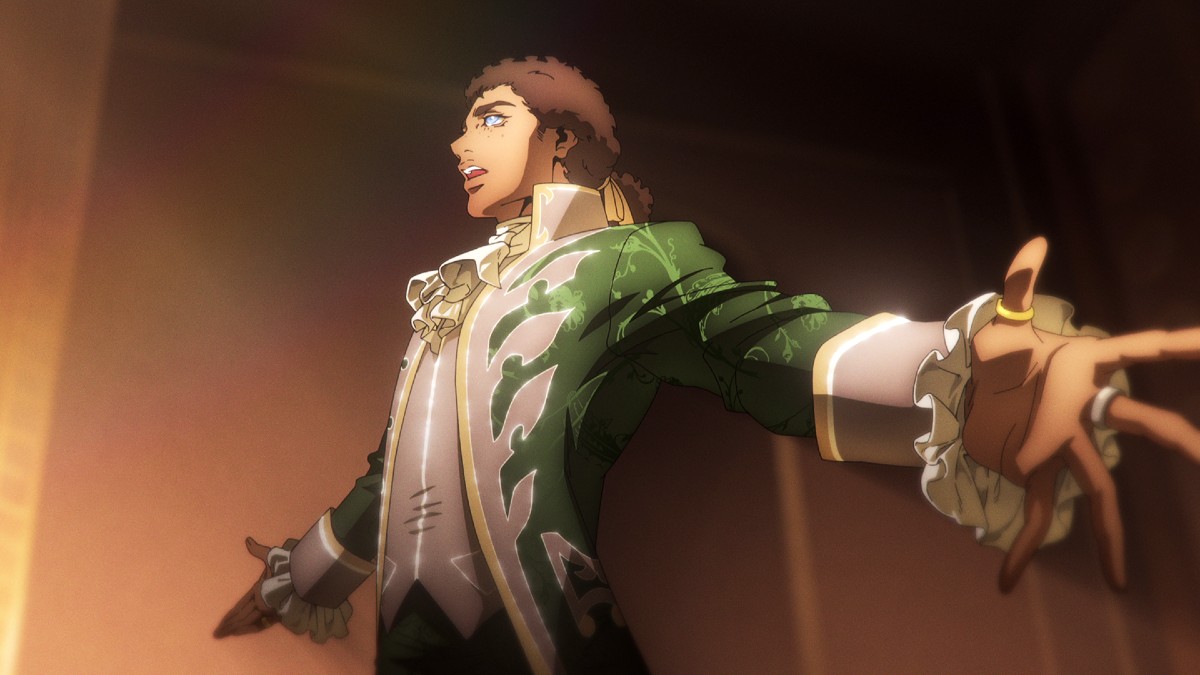The Importance of Song in ‘Castlevania: Nocturne’
The unifying power of music.

Netflix’s Castlevania series developed a cult following over its four seasons. The sequel series, Castlevania: Nocturne, came out last month and created an exciting new chapter in the franchise. In many ways, Nocturne took what the original series did and crafted it into perfection. Both the heroes and villains are more nuanced and interesting than before. I can’t wait to see where the series goes in Castlevania: Nocturne season 2.
Nocturne is set in France about 300 hundred years after the first Castlevania show, in 1792. That means two historical revolutions were occurring at the same time as all the vampire troubles in Nocturne. Beginning in 1791, the Haitian Revolution saw French colonizers ousted from their former colony. The Haitian Revolution was led by former slaves who fought against slavers to regain control of the island. It’s the only revolution in history that successfully removed colonizers, abolished slavery, and established Black leadership when it ended in 1804.
At the same time, France faced a revolution at home. From 1789 to 1799, the lower classes fought to fix the enormous wealth gap between them and the aristocracy. What little money France had went to the wealthy and left the rest of the people, especially the poor, with nothing. The French Revolution sought to change that. They decapitated monarchs, so you know they meant business. Interestingly, Nocturne highlights both the Haitian and French Revolutions in its eight episodes and perfectly illustrates how music played a part in both revolutions.
The sound of revolution
Unlike the original series, which only featured soundtrack music, Nocturne uses diegetic music to unite characters and signal revolution. The French Revolution coincided with a musical revolution that changed how music was written and played. Some musical historians pinpoint this era as being when mainstream musicians linked their work to a political cause. During scenes of Richter Belmont (Edward Bluemel) visiting taverns in France, people sang revolutionary songs to signal that change was in the air. If you knew the song, other revolutionaries knew you were fighting for the cause, too.
Heroes Annette (Thuso Mbedu) and Edouard (Sydney James Harcourt) arrive in France fresh from the Haitian Revolution. Annette talks about her life as a slave in Haiti. Her mother and other adults sang songs out of earshot of the white overseers to comfort each other as well as plan for things to change. They used songs to create a culture separate from their oppressors. After getting out from under the white vampire slaver, Annette found a sanctuary with Edouard. As a bi-racial, trained opera singer, Edouard had a very different life from Annette. This man sang in opera houses and stunned crowds with his hauntingly beautiful voice.
An act of resistance
Sometimes, the music serves less as a literal revolutionary tool and more as an act of resistance. Singing songs during terrible times shows that our spirits aren’t broken and we can still create something beautiful. This is why many songs of slavery were prohibited during the time slavery was legal and in the time that followed. The songs made the struggles and the pain of the oppressed all too real.
Nocturne underlines this point with Edouard. During a fight between the heroes and vampires, Edouard couldn’t escape the monsters. Annette tried to save him but ultimately had to leave. Everyone assumed Edouard had died, and technically, he did die. The night creatures took his body to the forge, where he was remade and brought back to life as one of the most heartbreakingly pretty night creatures to exist. Because he is not a mindless demon, just Edouard in an altered body, the vampires left him locked in a cage.
But all is not lost for Edouard because he still sings. His voice echoes through the jail cells for only monsters to hear. Erzsebet Bathory, the big bad vampire of Nocturne, cannot stand Edouard’s defiant singing and orders for him to be silenced. When Annette realizes Edouard is alive, she tries to free him. Yet he decides to stay with the night creatures because he sees how his singing changes them for the better. Scientists have researched how hormones, including oxytocin, the “love” hormone, are released when people sing together, creating a bond between people. It seems like this works for night creatures, too. Castlevania: Nocturne gives us so much with Edouard, but his legacy will be his song and how that small act of resistance can bring on revolutions.
(featured image: Netflix)
Have a tip we should know? tips@themarysue.com